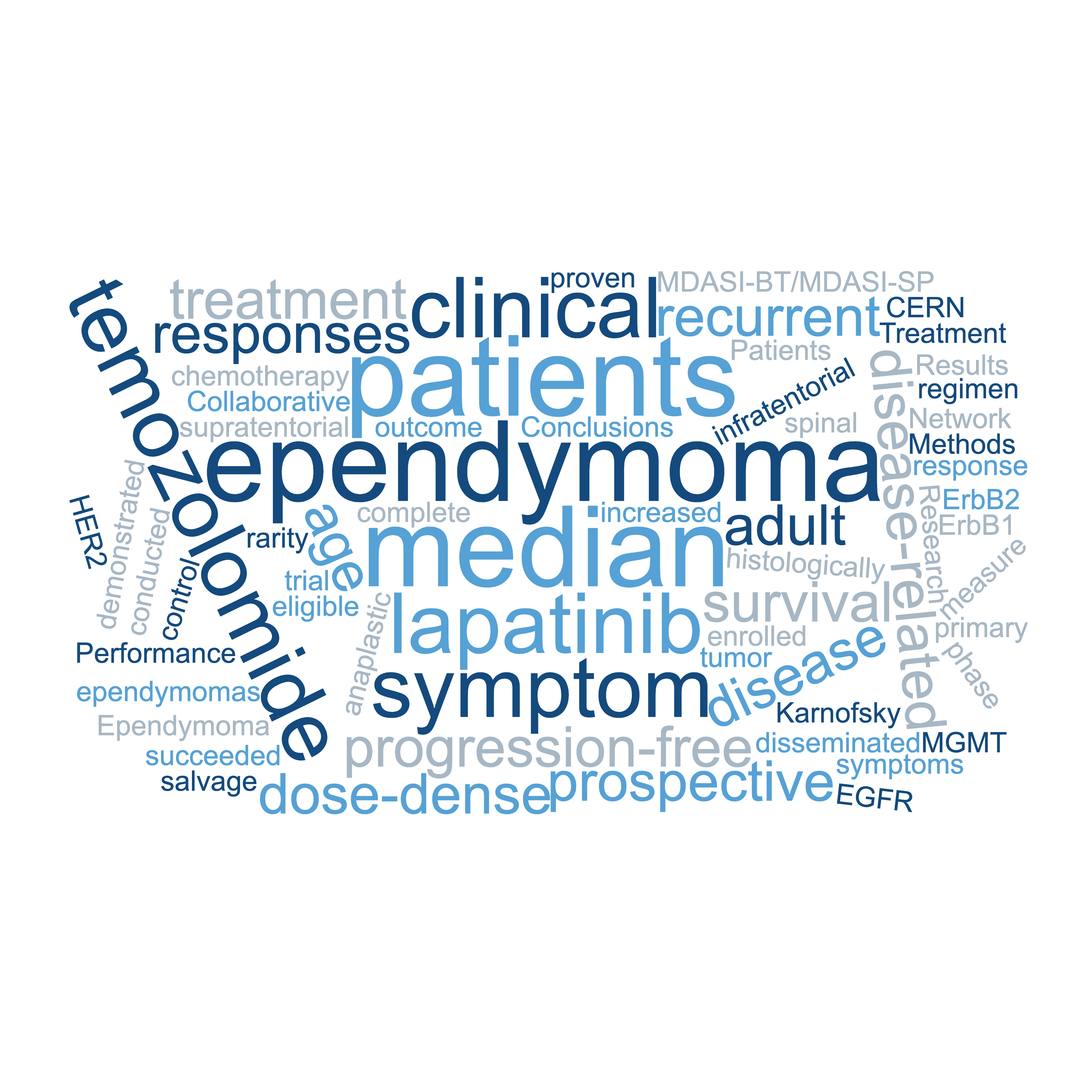CERN 08-02 Clinical Trial Creates Significant Impact in the Ependymoma Community
— Categories: CERN Research Articles Posted on December 11, 2020
The CERN Foundation supported a phase II clinical trial, CERN 08-02, for adults with recurrent ependymoma. A manuscript describing the results of the trial has been accepted for publication in Neuro-Oncology. Neuro-Oncology is the official journal of the Society for Neuro-Oncology.
Rare Disease Research Presents Many Challenges
Ependymoma is a rare tumor for which the role of chemotherapy has not been established either for newly diagnosed or recurrent disease. Low accrual rates and scarcity of funding is a common cause for the lack of research in rare disease. The CERN 08-02 trial is the first prospective adult clinical trial to report on the potential use of chemotherapy for recurrent ependymoma in adults. Fifty patients with ependymoma tumors in the brain and spine were enrolled in the phase II trial.
Groundbreaking Work Changes Future for Ependymoma Research
Patients on the study were treated with chemotherapy, temozolomide (Temodar) and the drug lapatinib, and routinely completed patient outcomes surveys. The research effort was led by principal investigator Dr. Mark Gilbert, chief, and patient-reported outcomes chair Dr. Terri Armstrong, deputy chief, both of the Neuro-oncology Branch, Center for Cancer Research, National Cancer Institute at the National Institutes of Health.
Results from the trial showed the first proof that this treatment regimen is effective for adults with recurrent ependymoma. Conclusions from the published abstract report that the treatment demonstrated clinical activity with objective responses (either tumor stabilization or tumor shrinkage) and prolonged disease control associated with disease-related symptom improvements. This approach, combining temozolomide with lapatnib, is now a recognized treatment regimen for adult patients with recurrent ependymoma.
“This study is the first prospective clinical trial for adults with ependymoma and represents the collaborative efforts of many colleagues and several institutions,” said Dr. Gilbert. “It not only provides strong evidence that this treatment is effective but provides proof that clinical trials are possible and important for rare cancers.”
The inclusion of patient-reported outcome measures in the study were significant in demonstrating the effect of the treatment combination.
“In this study, we were able to show that although patients receiving treatment had symptoms that occurred related to the treatment, like fatigue, the symptoms associated with the disease were improved even in those who had stable disease,” says Dr. Armstrong.
Because of this study, this combination regimen has been endorsed by the National Comprehensive Cancer Network (NCCN) Clinical Practice Guidelines in Oncology as a standard treatment for adult patients with recurrent ependymoma. This is meaningful for ependymoma families as now insurance should recognize the drugs as approved therapy for recurrent ependymoma. In addition, community hospitals will now be able to find appropriate options when caring for adults with recurrent ependymoma, therefore enhancing the outcomes of those people with ependymoma by providing a new treatment option.
Dedication and Teamwork
This fantastic work is in large part attributed to the dedicated neuro-oncology professionals who remained highly committed to this project from start to finish. The clinical trial design, combined with the patient-reported outcomes, helped to achieve maximum results as proved by the acceptance into the NCCN guidelines.
The trial was made possible because of the invaluable contributions of all the people with ependymoma who enrolled on the study. The work was generously supported by the CERN Foundation, now a program of the National Brain Tumor Society. CERN awareness and education efforts also helped to support referrals to sites that participated in the clinical trial. Kim Wallgren, Executive Director of the CERN Foundation, shares, “Because of our commitment to high quality and collaborative science, together we were able to overcome many of the barriers to rare disease research and complete a study that will continue to have impact on the worldwide ependymoma community for years to come.”
Without all of these key players, none of this work could have moved forward. This study serves as an important steppingstone for future research in rare disease.

